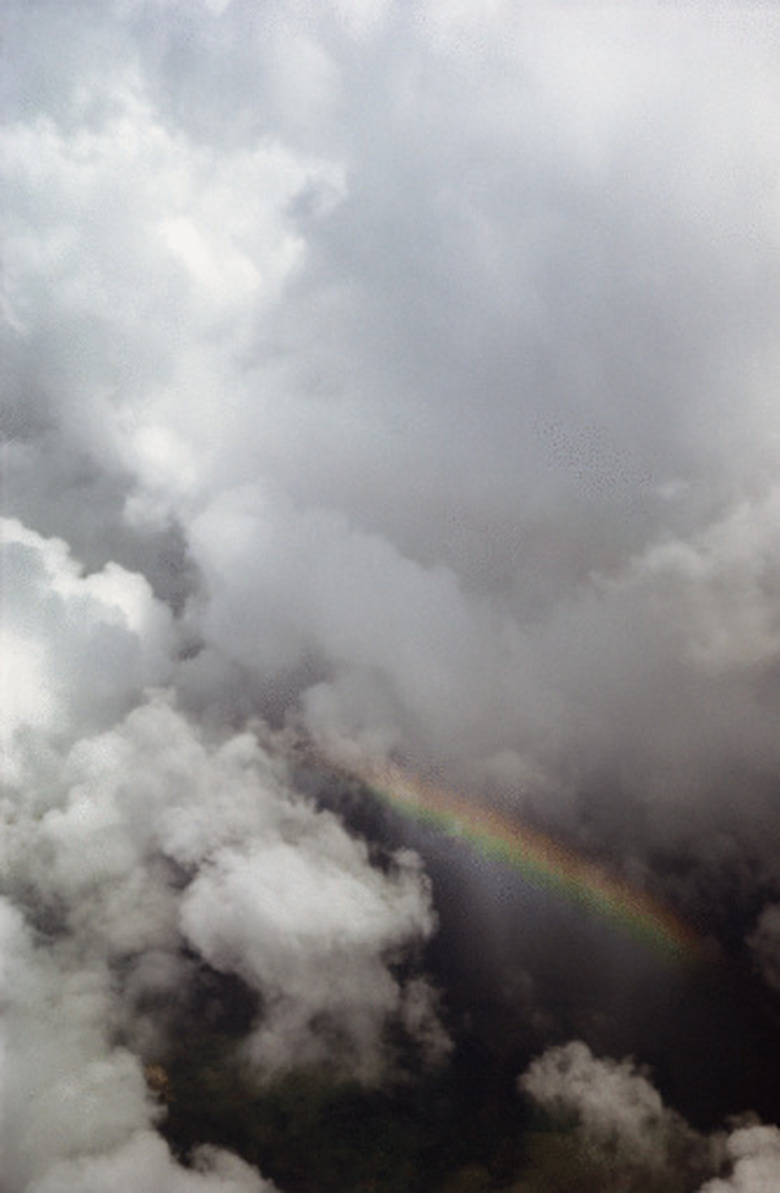Science Projects With A Prism
Science projects involving prisms usually deal with the color spectrum. The most basic experiments involve observing the manner in which a glass prism breaks white light into colored light. More advanced projects use this basic principle to further study light in other ways, such as the behavior of colored light or the heat of light.
Basic Prism Experiment
Basic Prism Experiment
Students in the lower primary grades who have never worked with a prism before should start with the basic prism experiment. The experiment requires a glass prism and a flashlight. Place the prism on a flat surface with plenty of space. Shine the flashlight on the prism in a manner that allows the light to pass through the prism from one side to the other, rotating the prism until it produces the spectrum. Observe the colors and write down your observations.
Colored Light
Colored Light
The colored-light experiment requires a small alteration of the basic prism experiment, but otherwise operates similarly. The student shines light from different colored light bulbs through the same prism, using the same room and surface conditions to test each color. If able to shine the colored light directly on the prism, as you would with a flashlight, then observe the intensity of the spectrum on a flat surface. Otherwise, use standard light bulbs and shine the light on the prism inside a slotted box. For best accuracy, measure the amount and intensity of the light by using a computerized light meter.
Make a Prism
Make a Prism
Rather than using an actual glass prism, students can opt to make their own prism to demonstrate their knowledge of the color spectrum. Pour water into a clear glass, filling the glass just a little more than halfway. Place the glass on the edge of a chair or other flat surface, allowing nearly half of its bottom to hang over the edge. Lay two sheets of white paper on the floor beneath the surface holding the glass. Shine a flashlight near the outside of the glass at water-level, pointing the light down in the direction of the paper. Adjust the direction of the light until you see a rainbow appear on the paper.
Infrared Experiment
Infrared Experiment
This experiment measures the amount of heat in various parts of the color spectrum. Tape three alcohol thermometers side by side at the bottom of an open box. Place an equilateral glass prism at the top of the box, allowing sunlight to pass through it to the bottom of the box. Adjust the thermometers so that they fit across the span of the spectrum cast on the bottom of the box from the prism. After a minute in direct sunlight, record the temperature of each thermometer to discover which end of the spectrum holds more heat.
Cite This Article
MLA
Lowe, Caitlynn. "Science Projects With A Prism" sciencing.com, https://www.sciencing.com/science-projects-prism-7976707/. 24 April 2017.
APA
Lowe, Caitlynn. (2017, April 24). Science Projects With A Prism. sciencing.com. Retrieved from https://www.sciencing.com/science-projects-prism-7976707/
Chicago
Lowe, Caitlynn. Science Projects With A Prism last modified August 30, 2022. https://www.sciencing.com/science-projects-prism-7976707/
